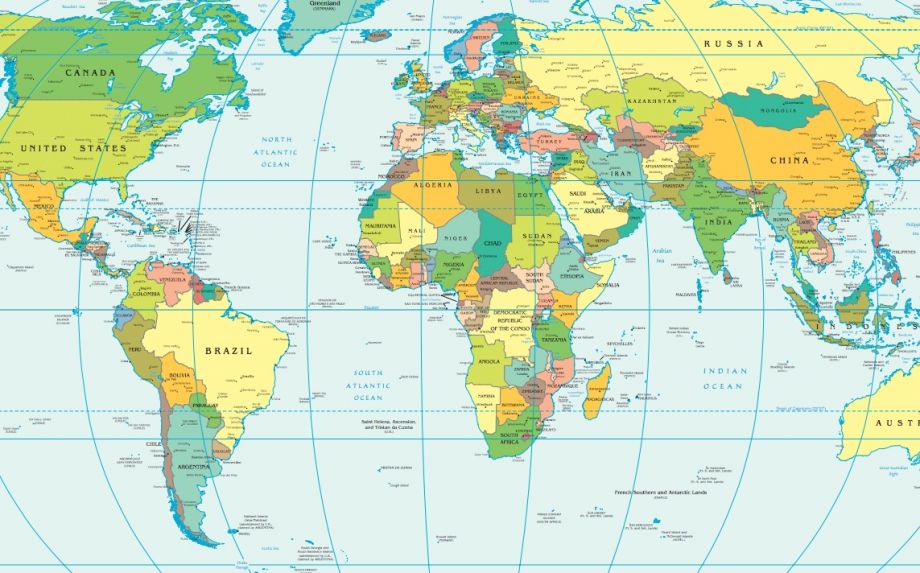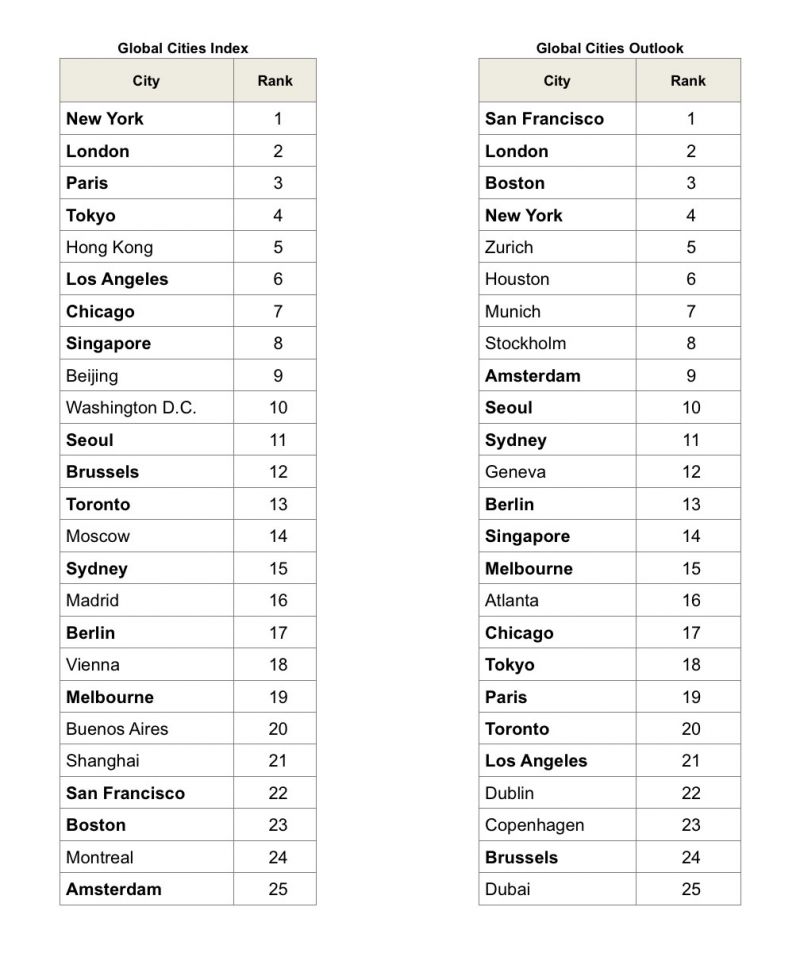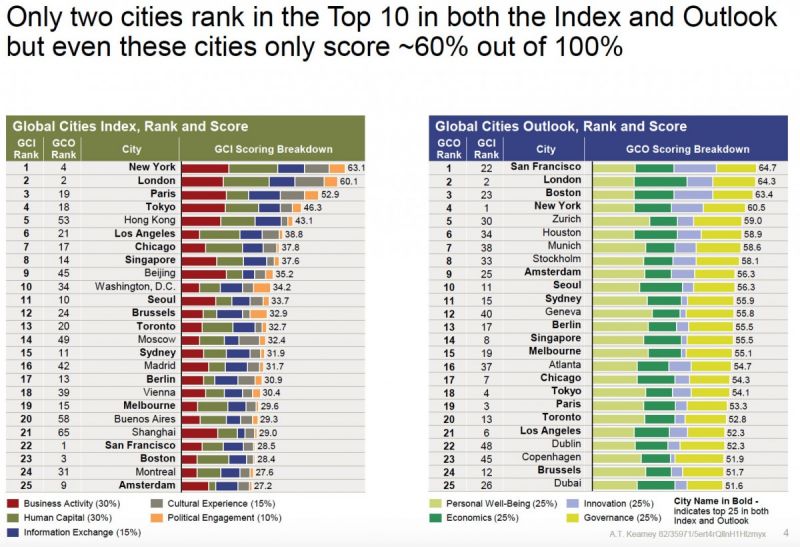How Many Cities Does It Take to Make the Perfect City?

A new ranking out this week names the top global cities — and pinpoints the cities with the most potential to be on that list in the future.
For 2015, Chicago-headquartered consulting firm A.T. Kearney added a “Global Cities Outlook” list to its annual Global Cities Index report. According to A.T. Kearney, the yearly index “provides a unique assessment of global engagement for 125 cities representing all continents and regions, measuring how globally engaged each city is across 26 metrics in five dimensions — business activity, human capital, information exchange, cultural experience and political engagement.
The new feature, the Outlook, “evaluates the future potential of 125 cities based on the rate of change across four dimensions — personal well-being, economics, innovation and governance.”
Forty-one new cities made it into the group that was evaluated this year, including Philadelphia, Phoenix, Accra and Chennai.
Sixteen cities ranked in the top 25 on both the GCI and the GCO.

(Credit: A.T. Kearney)
Only London and New York ranked in the top 10 of both.

(Credit: A.T. Kearney)
In a press statement, Erik Peterson, A.T. Kearney partner, said: “The structure of the Global Cities 2015 measures both the current performance and future potential of cities to attract and retain global capital, people and ideas. As cities continue to expand their global influence, the Global Cities results inform the strategies of business leaders (placement of regional headquarters, research centers and other operational hubs) and city governments (improvement plans and investment decisions).”
The report emphasizes the international nature of today’s urban competitiveness and also acknowledges that perfection is a tough reach given the metrics.
Creating the “perfect” global city from the Global City Index requires the attributes of 19 separate cities, up from 16 in 2014. The #1 cities in the Index and Outlook only score ~60/100, with Beijing entering the Global City Index Top 10 in seven years.
Top cities in Europe outperform North America today but North America shows more future potential, especially in innovation. Top cities in China significantly outperform India today but the race for the future is tighter.
See the methodology and full report here.
Jenn Stanley is a freelance journalist, essayist and independent producer living in Chicago. She has an M.S. from the Medill School of Journalism at Northwestern University.
Follow @jennstanley_

No comments:
Post a Comment
Please leave a comment-- or suggestions, particularly of topics and places you'd like to see covered